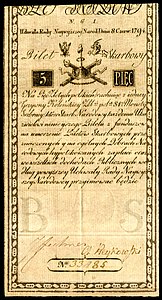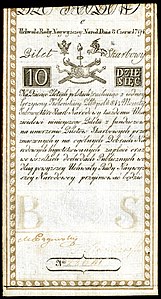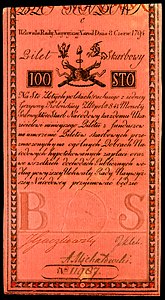From today's featured article
Tessa Sanderson (born 1956) is a retired British javelin thrower. She appeared in every Summer Olympics from 1976 to 1996, winning the gold medal in the javelin at the 1984 Olympics. She was the first Black British woman to win an Olympic gold medal, and the second track and field athlete to compete at six Olympics. Sanderson won gold medals at three Commonwealth Games and at the 1992 IAAF World Cup. She set five Commonwealth records and ten British national records in the javelin, as well as records at junior and masters levels. Sanderson had a rivalry with fellow Briton Fatima Whitbread, who took the bronze in the 1984 Olympics. Sanderson was a sports reporter for Sky News when it began broadcasting in 1989. She was vice-chair of Sport England from 1999 to 2005, and later established the Tessa Sanderson Foundation and Academy, which aims to encourage young people and people with disabilities to take up sport. She became a Commander of the Order of the British Empire in 2004. (Full article...)
Did you know ...
- ... that Osmond J. Ritland (pictured) was one of four men who selected Area 51 as the site for their Lockheed U-2 spy plane project?
- ... that the 8.2 Mw Biak earthquake of 1996 triggered disproportionately large tsunamis relative to its magnitude?
- ... that American psychologist Mildred Newman and her husband treated so many celebrities that the two were known as "therapists of the stars"?
- ... that Sheikh Mujibur Rahman proclaimed the independence of Bangladesh from his residence in Dhaka before his arrest by the Pakistan Army?
- ... that Charley Frazier played in the American Football League even though he did not play college football?
- ... that despite two 16th-century books often being referred to as the Edwardine Ordinals, the word "ordinal" was not applied to them until the 17th century?
- ... that local regulation and law enforcement in Brighton's early history was carried out by the Society of Twelve, a beadle "in cocked hat and full regalia", and two "Old Charlies"?
- ... that a lion's head was preserved during construction of Gilman Square station?
In the news
- A magnitude 7.6 earthquake strikes Papua New Guinea, leaving at least seven people dead.
- Elizabeth II, Queen of the United Kingdom and 14 other Commonwealth realms, dies at the age of 96 and is succeeded by her son King Charles III (pictured).
- Liz Truss succeeds Boris Johnson as leader of the Conservative Party and Prime Minister of the United Kingdom.
- A magnitude 6.6 earthquake strikes China's Sichuan province, leaving at least 93 people dead.
On this day
- 1541 – After three years of exile, French theologian John Calvin returned to Geneva to reform the church under a system of Christian theology later known as Calvinism.
- 1759 – French and Indian War: British forces won the Battle of the Plains of Abraham near Quebec City, despite General James Wolfe being mortally wounded.
- 1959 – The Soviet spacecraft Luna 2 (model pictured) impacted the Moon, becoming the first spacecraft to reach another celestial body.
- 1964 – South Vietnamese generals Lâm Văn Phát and Dương Văn Đức staged a coup attempt after being demoted by junta leader Nguyễn Khánh.
- 1985 – Super Mario Bros., one of the most influential and best-selling video games in history, was first released in Japan for the Nintendo Entertainment System.
- Kavad I (d. 531)
- Clara Schumann (b. 1819)
- Emmanuel Chabrier (d. 1894)
Today's featured picture
The Polish złoty is the official currency of Poland. While originally existing only as coinage, radical changes to the currency were made during the Kościuszko Uprising in 1794. The second partition of the vast Polish–Lithuanian Commonwealth resulted in the loss of approximately 200,000 square kilometres (77,000 sq mi) of land and precipitated an economic collapse. The widespread shortage of funds to finance the defense of remaining territories forced the insurrectionist government to look for alternatives. In June 1794, the Polish military leader Tadeusz Kościuszko began printing paper money as a substitute for coinage, which could not be minted in required quantities. The first Polish banknotes were issued on 8 July 1794. The banknotes depicted here, in five denominations from five to one hundred złotych, are from the first issue in 1794 and today form part of the National Numismatic Collection at the Smithsonian Institution. Banknote design credit: Kingdom of Poland; photographed by Andrew Shiva
Recently featured:
|
Other areas of Wikipedia
- Community portal – The central hub for editors, with resources, links, tasks, and announcements.
- Village pump – Forum for discussions about Wikipedia itself, including policies and technical issues.
- Site news – Sources of news about Wikipedia and the broader Wikimedia movement.
- Teahouse – Ask basic questions about using or editing Wikipedia.
- Help desk – Ask questions about using or editing Wikipedia.
- Reference desk – Ask research questions about encyclopedic topics.
- Content portals – A unique way to navigate the encyclopedia.
Wikipedia's sister projects
Wikipedia is written by volunteer editors and hosted by the Wikimedia Foundation, a non-profit organization that also hosts a range of other volunteer projects:
-
Commons
Free media repository -
MediaWiki
Wiki software development -
Meta-Wiki
Wikimedia project coordination -
Wikibooks
Free textbooks and manuals -
Wikidata
Free knowledge base -
Wikinews
Free-content news -
Wikiquote
Collection of quotations -
Wikisource
Free-content library -
Wikispecies
Directory of species -
Wikiversity
Free learning tools -
Wikivoyage
Free travel guide -
Wiktionary
Dictionary and thesaurus
Wikipedia languages
This Wikipedia is written in English. Many other Wikipedias are available; some of the largest are listed below.
-
1,000,000+ articles
-
250,000+ articles
-
50,000+ articles








